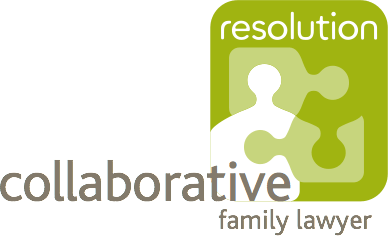Divorce Mediation Solicitors
When you think of divorce, do you imagine stark court rooms, stern judges and shouting matches between angry couples? You wouldn’t be alone. Divorce can be a daunting process, but in fact, this image does not represent the modern day reality. Very few divorces need to be battled out in court nowadays. Alternative dispute resolution processes such as divorce mediation have developed a strong track record for helping separating couples come to an amicable and stress-free resolution to divorce related issues.
At Atkins Hope, our family law team includes qualified divorce mediator, Juliet Adelman. Juliet is a Resolution-accredited specialist with nearly 30 years’ experience in family law.
To speak with our friendly, expert divorce solicitors, please ring 0208 680 5018 or get in touch with your local branch in Croydon, Medway, Blackheath or Guildford. Alternatively, please fill in our online enquiry form and a member of our team will be in touch shortly.
How our divorce mediation expertise can help you
We provide high quality legal advice combined with a supportive, personal service. We recognise that divorce, civil partnership dissolution or separation can be one of the most stressful life events a person can go through. Our goal is to help you navigate the difficult avenues of the divorce process, including financial settlements and arrangements for children, as swiftly and straightforwardly as possible.
Discussing matters such as who should keep the family home and who the children should live with are often contentious issues. However, contrary to popular belief, most couples are able to work through these questions without resorting to lengthy and expensive court proceedings.
Divorce mediation is a form of alternative dispute resolution designed to provide separating couples with a safe, neutral space to arrange their divorce. You will work with a qualified mediator who will guide your discussions and help you defuse any conflict. If successful, the result will be a written agreement that works for every member of the family.
Divorce mediation FAQs
What can I expect at a divorce mediation?
Mediation involves attending a meeting or series of meetings with your former partner to discuss matters relating to your divorce or civil partnership dissolution with the help of a qualified mediator.
The meetings will be held in a neutral setting, not a court room, as the aim is to provide you with an open environment in which you can feel comfortable to express your feelings and needs.
The mediator is not like a judge. Although they will usually be a qualified family lawyer, they are not there to provide you with legal advice, take sides, or present arguments on behalf of either party. Their role is to guide your conversation, ensure you hit all the points necessary to form a suitable agreement, and help you defuse any conflict.
You won’t be forced to agree to anything you do not want to at divorce mediation, However, at the end of your sessions, if you are able to come to an agreement, the mediator will create a written document setting out your terms.
How long does it take to get a divorce through mediation?
Divorce mediation usually doesn’t take as long as going through the courts because:
- You are not subject to the court’s timetable and can arrange your mediation meetings to fit around your own schedule
- When couples agree to mediate, they agree to cooperate, compromise, and do everything possible to come to an agreement. This helps keep conflict low, shortening the process
- Where conflict does arise, it is usually easier to resolve as the ‘me versus them’ mentality that court proceedings often encourage is not present
Usually, mediation takes several sessions over a few weeks. However, depending on the individual circumstances of your case and the complexity of the issues involved, divorce mediation could take anything from a few weeks to a few months.
How much does mediation cost in a divorce?
Mediation is not free but it tends to be faster and cheaper than court proceedings. We will discuss fees with you at your initial meeting with us so you can get an accurate idea of how much it will cost to use divorce mediation over court proceedings to sort out your divorce. We aim to keep our costs competitive and proportionate so that alternative dispute resolution is accessible to all who need it.
Is Divorce Mediation successful?
When a couple has settled on terms cooperatively and voluntarily as opposed to a judge making a decision on their behalf, the agreement is much more likely to stick. For this reason, divorce mediation is successful at helping separating couples come to long term agreements about their finances, spousal maintenance, and arrangements for children.
What should I discuss in divorce mediation?
Divorce mediation is mostly used by couples looking to discuss financial arrangements and arrangements for children.
For financial arrangements, you will discuss matters such as:
- Who gets to keep the family home or whether it should be sold
- How your money and property, including savings, pensions and belongings, should be divided
- How any debts should be maintained
- Spousal maintenance payments
- Child maintenance payments
For more information, please visit our Divorce and Financial Settlements page.
For children arrangements, you will discuss matters such as:
- Who the children will live with most of the time
- How much time they will spend with their other parent and relatives such as grandparents
- Key decisions about their upbringing such as where they will go to school and medical treatment
- Whether their name can be changed
- Whether they can be taken abroad to live or to go on holiday
For more information, please visit our Disputes over Children page.
Do I have to go to mediation?
You don’t have to use divorce mediation. However, we always recommend considering it unless you specifically cannot or do not want to meet with your former partner to discuss matters. You can always go to court if you cannot come to an agreement with your former partner through mediation.
For certain family law court applications, such as for a Child Arrangements Order, you must attend a Mediation Information and Assessment Meeting (MIAM) before you can make the application. This is simply a meeting to see whether you may benefit from mediation. If you have already tried mediation, you can skip this stage.
Are divorce mediation agreements legally binding?
Any agreement you make during divorce mediation is not automatically legally binding. However, we can help you apply to court to turn the agreement into a Consent Order. This means that if your former partner does not stick to the agreement, you will be able to legally enforce it.
Contact our divorce mediators today
To speak with our friendly, expert divorce solicitors, please ring 0208 680 5018 or get in touch with your local branch in Croydon, Medway, Blackheath or Guildford. Alternatively, please fill in our online enquiry form and a member of our team will be in touch shortly.








